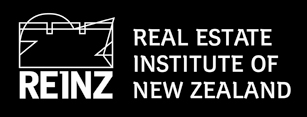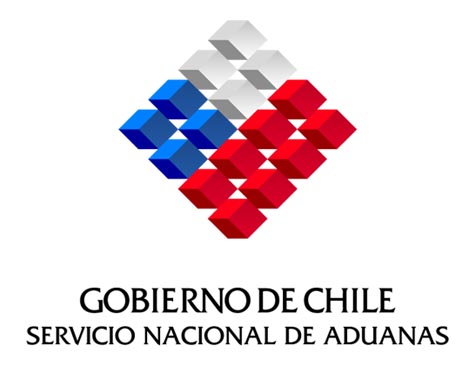charities act 2006 review – call for evidence charity registration thresholds and excepted charities issue: the existing legal framework
Charities Act 2006 Review – Call for Evidence
Charity registration thresholds and excepted charities
Issue: The existing legal framework sets out a scheme for when and how
charities are required to register with the Charity Commission (or
another regulator if appropriate – see call for evidence on exempt
charities). However, there is ongoing discussion as to whether the
current thresholds and regimes applicable to different types of
charity achieve the right balance between accountability and
bureaucracy.
Background:
The Charity Commission has responsibility (in England & Wales) for
maintaining the register of charities. While inclusion on the register
entitles organisations to a registered charity number, it is not
necessary for an organisation to be registered in order to be a
charity; there are a large number of unregistered but entirely
legitimate charities. It is, however, a legal obligation for all
charities with an annual income over £5,000 to register with the
Charity Commission (apart from exempt charities and excepted charities
– see below). Failure to register does not mean that the organisation
is not a charity, but that the charity is in breach of its legal
obligations. Registered charities are required to comply with the
Charity Commission’s reporting and accounting rules, which become more
stringent as levels of income increase (see also the separate call for
evidence on accounting and reporting requirements). This Review seeks
to understand whether the registration threshold is set at an
appropriate level and what the implications of any changes would be
for organisations involved.
There is little doubt that the register is a vital means of
maintaining public confidence in both individual charities and the
charitable sector as a whole. However, potential donors and funders
can tend to overlook unregistered charities simply because they do not
have a registration number. This gives charities that have “registered
charity status” an unintended advantage over legitimately unregistered
charities.
The Review will, therefore, be considering how a level playing field
might be created that ensures that charities that are not registered
are not unfairly disadvantaged. One way of achieving this might be to
implement the provision introduced by the Charities Act 2006 (now
section 30(3) of the Charities Act 2011) that requires the Charity
Commission to register charities that want to register voluntarily
(the Charity Commission actively discourages voluntary registration at
present1).
The Charities Act 2006 also changed charity registration requirements
significantly. There are three types of charity that are not required
to register with the Charity Commission; charities with an income of
less than £5000 per year (of which there are estimated to be 80,000),
exempt charities (of which there are estimated to be just under
10,000) and charities excepted by regulations from the requirement
register unless their income is more than £100,000 (excepted
charities, of which there are estimated to be 100,000). The changes
for exempt and excepted charities are explained on the Charity
Commission’s website2. The nature and regulation of exempt charities
is discussed in a separate call for evidence.
Excepted charities are regulated by, but not registered with, the
Charity Commission. They can choose to register voluntarily, though
most currently opt not to as registration triggers the accounting and
reporting requirements already mentioned.
The main groups of excepted charities are religious charities from
certain Christian religious denominations (including Parochial Church
Councils), scouts and guides, and armed forces service non-public
funds. They are something of a historical anomaly; in the 1960s, when
most charities were being required to register with the Charity
Commission (but the Commission exercised no regular oversight
function), these organisations were excepted as they were already
supervised by their own umbrella body.
The Charities Act 2006 sought to rectify this anomaly. The Act
required all excepted charities with an annual income of over £100,000
to register with the Charity Commission. This threshold is temporary,
and the original intention was that it would reduce (ultimately to the
same level as the general registration threshold i.e. currently £5000,
but possibly a higher figure). However, the Act prohibits the Minister
from reducing the excepted charities registration threshold further
until the Report of this review has been laid in Parliament.
This Review seeks to understand what the impact of registration has
been on those formerly excepted charities that have been required to
register and, in light of this, to make recommendations on whether
and, if so, how, this process should continue. It will also explore
alternative approaches to managing the registration and regulation of
excepted charities, such as transformation into exempt charities with
a principal regulator (with principal regulators having a working
relationship the Charity Commission). For example, could the umbrella
organisation of a Christian religious denomination act as principal
regulator for its constituent churches or chapels, so eliminating the
need for such churches or chapels to register?
The Review will also be exploring whether a similar “principal
regulator” approach might also be applied to registered charities that
have a national umbrella charity and separate branches that are also
registered charities. This would save the branches from the burdens of
registration, but at the same time leave their charitable status
intact.
Who should respond?
Anyone can respond, and all responses will be considered.
However, we are particularly interested to hear from formerly and
currently excepted charities, as well as charities themselves more
broadly.
Deadline for responses:
The deadline for receiving responses to this call for evidence is 16
April 2012.
How to submit your response:
Please send your response by e-mail to
[email protected]
Alternatively you can write to:
Charities Act 2006 Review
C/O Office for Civil Society
4/16, HM Treasury
1 Horse Guards Road
London SW1A 2HQ
Question 1: Should the annual income threshold for compulsory charity
registration remain at £5000? If not, what should it be? Please give
reasons for your answer.
Question 2: Should excepted charities be required to register with the
Charity Commission? If so, should the registration threshold be the
same as for other charities, or should it be at another level?
Question 3 (excepted/formerly excepted charities only): What were, or
would be, the implications of registration? What impact has this
had/would it have on your organisation? Are there any additional
changes that could be made to alleviate any negative consequences?
Question 4 (all registered charities): What would the implications be
for your organisation if the registration threshold was raised and
your organisation was no longer registered? Are there any additional
changes that could be made to alleviate any negative consequences?
Question 4 (unregistered charities only) Do you believe that your
charity is unfairly disadvantaged in any way because it is not
registered? If so do you want to register your charity or can you
suggest another way to overcome the difficulty?
Question 5: Are there any groups of excepted or registered charities
that would be suitable to become exempt charities with a principal
regulator? (Please explain why)
Question 6: Are there any alternative models of regulation that could
be appropriately applied to either excepted charities, or charities
more generally (for example, a system of sub- or co-regulators that
work with or report to the Charity Commission)?
Question 7: Do you have any other comments about the registration of
charities or excepted charity status?
Respondent details:
Name:
Position:
Organisation Name:
Organisation size (income)
Is your organisation a charity?
Yes/No
If so, is it registered with the Charity Commission?
Yes/No
Is your organisation an excepted charity?
Yes/No
If not, has it ever been an excepted charity?
Yes/No
What happens next?
*
We will acknowledge receipt of all responses, although we cannot
provide a detailed response to each individual submission.
*
All responses will be considered in forming the report of the
review.
*
The aim is for the report of the review to be laid in Parliament
and published in July 2012.
The small print:
All information in responses, including personal information, may be
subject to publication or disclosure in accordance with the access to
information regimes (these are primarily the Freedom of Information
Act 2000, the Data Protection Act 1998 and the Environmental
Information Regulations 2004). If you want your response to remain
confidential, you should explain why confidentiality is necessary and
your request will be acceded to only if it is appropriate in the
circumstances. An automatic confidentiality disclaimer by your IT
system will not, of itself, be regarded as binding on the department.
Contributions to the review report will be anonymised if they are
quoted, unless we contact you and you give us your permission to use a
particular quote.
Individual contributions will not be acknowledged unless specifically
requested.
1
http://www.charitycommission.gov.uk/Start_up_a_charity/Do_I_need_to_register/Resources_for_very_small_charities.aspx
2
www.charitycommission.gov.uk/Start_up_a_charity/Do_I_need_to_register/regreq.aspx#a2
 WHAT IS THE PURPOSE OF THIS FORM TO ASSIST
WHAT IS THE PURPOSE OF THIS FORM TO ASSIST ZAŁĄCZNIK 1 – EGZAMIN Z ZAWODU INFORMACJA O SPOSOBACH
ZAŁĄCZNIK 1 – EGZAMIN Z ZAWODU INFORMACJA O SPOSOBACH GUÍA DE AUTOAPRENDIZAJE EN SDMX N 3 MENSAJES SDMXMLML
GUÍA DE AUTOAPRENDIZAJE EN SDMX N 3 MENSAJES SDMXMLML SOLICITUD DE ADMISIÓN AL COLEGIO S LORENZO DE BRINDIS
SOLICITUD DE ADMISIÓN AL COLEGIO S LORENZO DE BRINDIS NEWS RELEASE 13 MAY 2011 STRONG LIFT IN RURAL
NEWS RELEASE 13 MAY 2011 STRONG LIFT IN RURAL ANÁLISIS DE VARIACIONES LINGÜÍSTICAS EN LAS DÉCIMAS DE LA
ANÁLISIS DE VARIACIONES LINGÜÍSTICAS EN LAS DÉCIMAS DE LA RESOLUCION N° 4800 VALPARAISO 12062008 VISTOS EL NUMERAL 115
RESOLUCION N° 4800 VALPARAISO 12062008 VISTOS EL NUMERAL 115 ACTA DE ADJUDICACION CONSIDERANDO QUE MEDIANTE RESOLUCIÓN EL PRESIDENTE
ACTA DE ADJUDICACION CONSIDERANDO QUE MEDIANTE RESOLUCIÓN EL PRESIDENTE ZVEZA ZA ŠPORTNI RIBOLOV NA MORJU SLOVENIJE 10
ZVEZA ZA ŠPORTNI RIBOLOV NA MORJU SLOVENIJE 10 EEB1 – YEAR 6 – VOYAGES SCOLAIRES – SCHOOL
EEB1 – YEAR 6 – VOYAGES SCOLAIRES – SCHOOL SOLICITUD DE PARTICIPACIÓN EN EL PROGRAMA DE MOVILIDAD ERASMUS+
SOLICITUD DE PARTICIPACIÓN EN EL PROGRAMA DE MOVILIDAD ERASMUS+ INSTITUTO DE ENSEÑANZA SECUNDARIA POLITÉCNICO DE CARTAGENA APUNTES DE
INSTITUTO DE ENSEÑANZA SECUNDARIA POLITÉCNICO DE CARTAGENA APUNTES DE